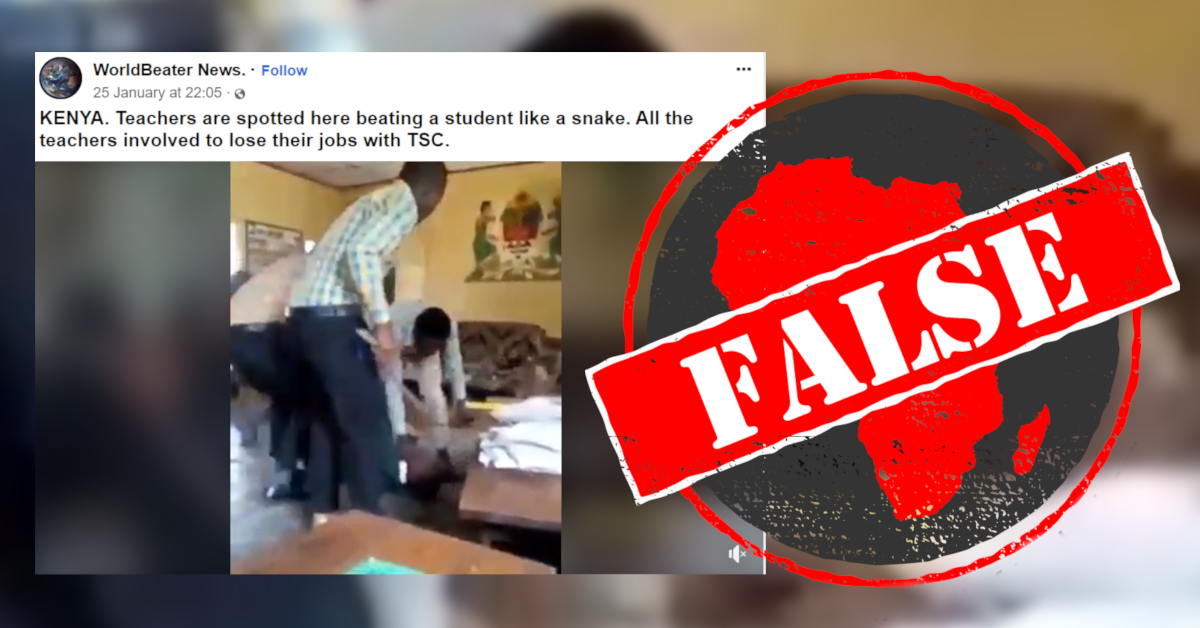A video posted on Facebook shows six men beating up a younger man, who seems to be wearing a school uniform. The six throw the youth to the ground and kick, slap and hit him with a stick.
In the background you can hear voices calling out “mwalimu'', Kiswahili for “teacher”, and “mtamuumiza jamani”, which means “you will surely hurt him”.
The headline of the video, posted on 25 January 2020, reads: “Kenya. Teachers are spotted here beating a student like a snake. All the teachers involved to lose their jobs with TSC.”
TSC is Kenya’s Teachers Service Commission, which registers and employs all primary and secondary school teachers in public schools.

But the video has been online since September 2016. And news reports from the time say the incident happened in Tanzania.
The Citizen newspaper reported that the video showed trainee teachers beating a student at Mbeya Day Secondary School, in Mbeya in southwestern Tanzania. The student was being punished for not writing a test.
The Citizen also said a senior government official in the presidency had “demoted” the school’s principal for not reporting the incident to the police.
The BBC and Kenyan media also covered the incident. – Dancan Bwire
In the background you can hear voices calling out “mwalimu'', Kiswahili for “teacher”, and “mtamuumiza jamani”, which means “you will surely hurt him”.
The headline of the video, posted on 25 January 2020, reads: “Kenya. Teachers are spotted here beating a student like a snake. All the teachers involved to lose their jobs with TSC.”
TSC is Kenya’s Teachers Service Commission, which registers and employs all primary and secondary school teachers in public schools.

Video shot in Tanzania in 2016
But the video has been online since September 2016. And news reports from the time say the incident happened in Tanzania.
The Citizen newspaper reported that the video showed trainee teachers beating a student at Mbeya Day Secondary School, in Mbeya in southwestern Tanzania. The student was being punished for not writing a test.
The Citizen also said a senior government official in the presidency had “demoted” the school’s principal for not reporting the incident to the police.
The BBC and Kenyan media also covered the incident. – Dancan Bwire
Republish our content for free
For publishers: what to do if your post is rated false
A fact-checker has rated your Facebook or Instagram post as “false”, “altered”, “partly false” or “missing context”. This could have serious consequences. What do you do?
Click on our guide for the steps you should follow.
Publishers guideAfrica Check teams up with Facebook
Africa Check is a partner in Meta's third-party fact-checking programme to help stop the spread of false information on social media.
The content we rate as “false” will be downgraded on Facebook and Instagram. This means fewer people will see it.
You can also help identify false information on Facebook. This guide explains how.


Add new comment